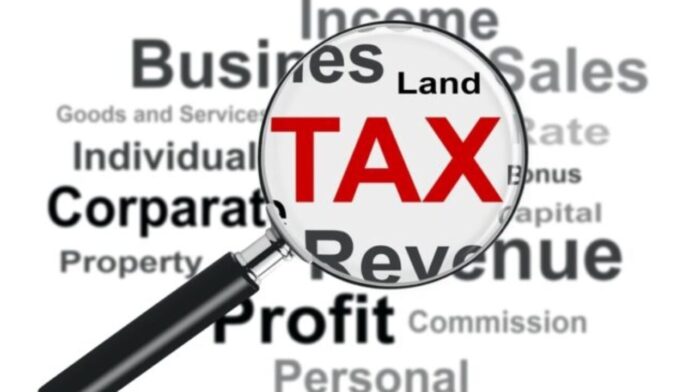Abuja’s tax plan will raise taxes and levies from January
By Jeph Ajobaju, Chief Copy Editor
Jitters are running down the spines of the Manufacturers’ Association of Nigeria (MAN), Nigeria Employers’ Consultative Association (NECA) and other stakeholders as Abuja plans to farm out new taxes in a struggling economy.
Finance Minister Zainab Ahmed announced on December 13 the ministry “is closely studying” the possibility of introducing new taxes, tariffs, and levies to increase revenue.
But the Organised Private Sector of Nigeria (OPSN) warn that new taxes at any level of government will raise unemployment rate beyond the current 33 per cent – the second highest in the world, after South Africa’s 34 per cent.
OPSN Chairman Taiwo Adeniyi said companies will be forced to close down and there will be more job losses in Nigeria.
Nigeria, Africa’s largest economy and most populous country, is the poverty capital of the world, a title it took from India in 2018 under the watch of Muhammadu Buhari, based on research by the World Poverty Clock compiled by Brookings Institute.
Adeniyi sought urgent action by the government at all levels to return the economy to consistent growth.
__________________________________________________________________
Related articles:
Abuja cranks out more taxes for officials to steal. Literally
Customs surpasses 2021 revenue target by N621b
Abuja reiterates debt will rise as revenue falls
Abuja eyes VAT expansion to fetch N316b
__________________________________________________________________
More taxes counterproductive, says OPSN
“While the pressure on revenue continues in the short term, we vehemently oppose any attempt to further burden organised businesses in the guise of new taxes or levies at the three tiers of government.
“Doing so will be counterproductive as this could further stifle the already burdened businesses, most of whom currently operate at less than 50 per cent capacity utilisation,” Adeniyi argued.
“It will also further lead to an upsurge in the unemployment rate with its attendant socio-economic consequences,” Adeniyi said in Lagos, reported by The PUNCH.
“We wish to specifically draw the attention of the National Assembly [NASS] to the ‘Establishment of the Tertiary Hospital Development Fund Bill 2021’, which among other things, seeks to impose a one per cent tax on businesses.
“Organised businesses are currently providing healthcare services for the staff through in-house hospitals, HMO providers or direct billing.
“It is unreasonable and will be an over-kill to still saddle the same organisations with the task of contributing to infrastructural development in the healthcare sector.
“Businesses are currently paying various percentages of their revenue to the NSITF, ITF, PenCom and other government agencies.”
Customs Amendment Bill
Adeniyi said NEC and other arms of the OPSN have sent position papers on the Customs Amendment Bill undergoing public hearing at the NASS which their representatives are also attending to make the presentation.
He raised concern over Clause 25 of the bill, saying: “This provision acknowledges an advance ruling in the Customs Framework in Nigeria. However, the application procedure for advance ruling would be done for a fee.
“Ruling to be delivered within 150 days and lasts within the fiscal year of issue and can be revoked upon reasonable notice. This means that businesses would incur fees for rulings and the rulings will be valid for one year and must be renewed yearly.”
Adeniyi recommended that ruling should be valid for five years, but “in the worst-case scenario, the service can adopt the European Union Binding Tariff Information procedure, which is valid for three years.
“We noted that the Amendment Bill seeks to extend recovery of unpaid duties from one year to seven years. Customs debt cannot be collected after seven years.
“However, this provision may be set aside in the event of a criminal allegation. This implies that a business can be exposed to unpaid customs and excise duties for a period of seven years and beyond seven years in the case of a criminal offence.
“We recommended that the provisions in the Customs and Excise Management Act 2004 should be retained, which is one year.”
OPSN urged the government to jettison the reintroduction of excise duty on carbonated drinks which was suspended in 2009 to aid business during the global financial crisis.
“We are concerned that the Federal Government recently made pronouncements on reintroducing the excise duty on this class of products. The economic situation that necessitated its suspension in 2009 has not abated.”
“Globally, at a time when governments continue to provide incentives for industries to speed up recovery from the shocks of the COVID-19 pandemic and escalating costs, Nigeria cannot afford to be doing the exact opposite as manufacturers, across all product segments, need a respite, especially in the light of the unprecedented increase in production and operating costs.”
Ibrahim Usman (MAN Executive Council member)
“The proposed increase in taxes and tariffs is ill-timed, the government should cut down the cost of governance instead if imposing more burden on companies.
“Times are hard, it is only when people have managed that they can pay taxes. Now, when you look at higher tariffs, we are not even getting what it is for, is it for electricity? Is it for water? Is it for telephones?”
Kingsley Moghalu (former Central Bank of Nigeria Deputy Governor)
“There is no need to introduce more taxes as it may do nothing to revive the economy.
“If I am elected Nigeria President in 2023 I will engage other revenue-generating mechanisms that will not burden Nigerians who are already paying taxes.”
Moghalu is a presidential aspirant on the platform of the African Democratic Congress (ADC).
Segun Ajayi-Kadir (MAN Director General)
“As Minister of Finance, Budget and National Planning, [Ahmed] is aware of the possible grave consequences of over taxation and excessive taxation in an economy that is just recovering from major setbacks.
“It goes without saying that manufacturing would be worse hit if such an ominous proposition becomes manifest in the sector.
“The sector is already groaning under multiple taxation from the three tiers of government and has been quite anxious about the imminent ill-advised re-introduction of excise, as well as steep increase in the rate of excise on some products, including carbonated and non-alcoholic drinks and tobacco products.
“Manufacturing businesses are yet to fully stabilise from the debilitating disruptive effect of COVID-19 pandemic and the non-accessibility of the so-called relief funds from government is well documented.
“What could be within reasonable contemplation should be widening the tax net to capture the largely untaxed endeavours that ought to have been within the tax bracket.
“I would want to believe that what the minister was referring to is that the net will be expanded to capture those and not that legitimate and diligent taxpayers would be made to pay more or that additional taxes would be levied upon them.
“That will be counterproductive and the envisaged additional revenue may not be realised.
“Instead, we may start to witness dwindling profitability, higher rate of business failure and predisposition to tax evasion. This is not to mention the disincentive to local and foreign investment.
“The tendency is to heed the advice from the World Bank and the like for more taxation in developing economies. But we have not considered that this has not led to appreciable growth in their economies.
“There is need for wisdom in gauging the times we are in and assessing the possible boomerang effects on our beleaguered socio-economic environment. With low and worsening disposable income, heightening insecurity and anxiety, caution is the word.”











